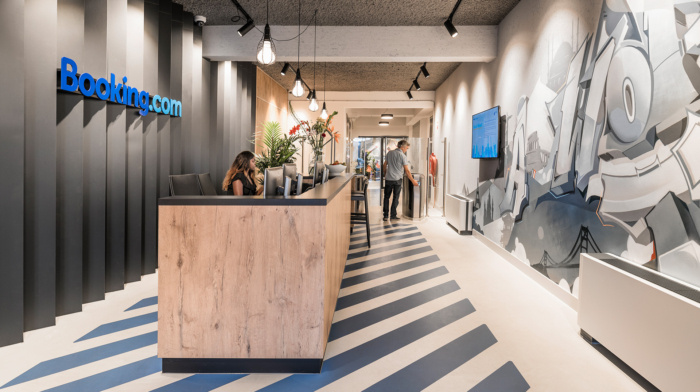Booking Holdings : The Supporter of Sustainable Travel and World’s Largest Travel Booking Company
Travel can broaden horizons, reduce barriers, and bring people closer together if done in accordance with the world’s local communities, environments, and biodiversity. Building a truly sustainable travel industry will take time, coordination, and a concerted effort and Booking Holdings is committed to that for its customers. Booking Holding is the largest online hotel booking website, helping make travel easier and sustainable for millions of customers around the world through product innovation, partner support, and industry collaboration.
About the Company
Booking Holdings Inc. is a US company headquartered in Norwalk, Delaware, and owns and operates many travel fare aggregators and metasearch engines, including Booking.com, Priceline.com, Agoda.com, Kayak.com. Cheapflights, Rentalcars.com, Momondo, and Open Table. The company operates several other travel fare aggregator systems. This website operates in approximately 40 languages and 200 countries. Booking Holdings has more than 300 offices, which employ more than 20,200 people.
Founding Booking Holdings
Jay S. Walker founded Booking Holdings as Your Own Price in 1997 and set up a website named Priceline.com for the same. The company’s first office was in Stamford, Connecticut, and it ran on a bidding model. Walker, who owned a 35 per cent stake in the company, became a multibillionaire after the company went public in 1999 through an initial public offering. This IPO raised the market value of the company to $12.9 billion on the first day, the highest first-day value for a corporation at the time. During the same time, the company also offered products and services, such as groceries, gasoline, home mortgages, and automobiles, but discontinued in 2000.
Priceline acquired Booking.com, the leading hotel booking website in Europe, which is also the world’s largest accommodations website, and merged it with Active Hotels in 2005. Priceline overtook Expedia to become the world’s largest online hotel reservation service in 2010. Priceline acquired TravelJigsaw, a multinational car rental company that is now known as Rentalcars.com.
The company’s name was changed to The Priceline Group Inc. on April 1, 2014. Forbes named the Priceline Group one of the Top 25 Most Innovative Companies in the World in 2015. The company acquired the Momondo Group in July 2017. One of Booking Holdings’ subsidiary, KAYAK, acquired the assets of Mundi, a Brazilian metasearch company, in August 2017. The company’s name was changed from The Priceline Group Inc. to Booking Holdings on February 21, 2018, turning the company’s ticker symbol from “PCLN” to “BKNG.”
Due to the effects of the Coronavirus pandemic, Booking Holdings had to lay off nearly 25% of its global workforce in 2020. But the company contributed to help during the tough times as the Grocery stores could use Booking Holdings owned OpenTable’s reservation technology to reduce long lines during the lockdown. Booking Holdings also raised $4 billion through a debt offering to prepare for the pandemic’s long-term impact on its business.
Subsidiaries and Branches of Booking Holding
Booking Holdings’ major subsidiaries include Priceline, Booking.com, Agoda, Rentalcars.com, KAYAK and OpenTable. Priceline and KAYAK are two discount related organisation. On one hand, Priceline is the market leader in online discounts with its Headquarters located in Norwalk, Connecticut, whereas KAYAK offers an online price comparison service. The headquarters of the latter is in Stamford, Connecticut. Booking.com and Agoda are the global leaders in connecting tourists with the most amazing hotels and resorts. The headquarters of Booking.com is in Amsterdam, the Netherlands and Agoda is headquartered in the heart of Asia, i.e., in Singapore.
OpenTable offers a similar service to the customers as people can make an online restaurant reservation through its website. The headquarters of OpenTable lies in San Francisco, California. Rentalcars.com, another subsidiary of Booking.com, providing an online rental car booking service with its headquarter in Manchester, England.
The Founder
Jay Scott Walker is the founder of Booking Holdings, who was born on 5 November 1955 in Queens, New York. He is a famous American entrepreneur and is also known as the chairman of Walker Digital. Walker studied Industrial and Labor Relations at Cornell University and graduated in 1978. Other than Booking Holdings, Walker has also founded Synapse, a company that processed magazine subscriptions, in 1992. The Direct Marketing Association presented Walker the “Direct Marketer of the Year” award in 1999 after Synapse made $300 million in sales in 1998.



